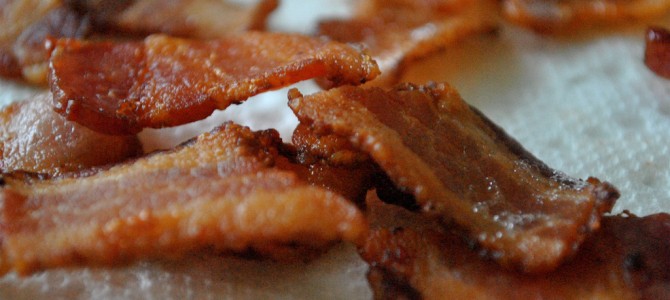
I am shocked, shocked to discover that the claim that eating “processed meats” will give you cancer is a load of bunk.
The assertion was made last week in a new report from the WHO, the World Health Organization. From some press reports, you would get the idea that eating bacon is just like smoking cigarettes. Except that it isn’t.
According to the CDC, smokers are 15 to 30 times more likely to get lung cancer than non-smokers. How about bacon-lovers? The less sensational news reports indicate that eating bacon increases the lifetime risk of getting colon cancer from 5 percent to maybe 6 percent. In other words, from small to small.
In fact, life is full of increased risks of a similar magnitude and greater certainty. Harvard Medical School’s Jonathan Schoenfeld compares it to “driving a car in the rain” — a slight increased risk but not enough to justify putting your life on hold.
There are dozens, probably hundreds of lifestyle changes you could make that would affect your mortality risk by the same amount — or more — as not eating bacon. Which means that, using this same approach to judging risk, you could arbitrarily seize on any one of them and try to make it into an international “public health” crusade.
That’s the real key to this story. Which of these small, equivocal risks do you choose to seize upon? That depends, not on science, but on your pre-existing moral, cultural, and political biases. If you don’t like red meat and bacon (because of a certain view of animal rights); wealthy, First World lifestyles; or any food that is “processed,” then you seize on any risk associated with these things while ignoring other risks of similar magnitude. It’s Neo-Puritanism dressed up as science.
The best answer to the WHO’s bacon fatwa is an old song from Joe Jackson, who lamented that “everything gives you cancer.”
The lyrics capture the Neo-Puritan outlook at work: “Don’t work hard/Don’t play hard…/No caffeine/No protein/No booze or/Nicotine.” It’s a whole list of no-no-no’s, with physical health replacing religious convictions as the supposed imperative behind the restrictions.
On a somewhat more highbrow level, G.K. Chesterton puzzled over this phenomenon of the Secular Puritan in his “Song of the Strange Ascetic.”
If I had been a Heathen,
I’d have praised the purple vine,
My slaves should dig the vineyards,
And I would drink the wine.
But Higgins is a Heathen,
And his slaves grow lean and grey,
That he may drink some tepid milk
Exactly twice a day.
And so on. The type he had in mind is everywhere today: the moral relativist who rejects traditional morality and is a gluten-free militant vegan.
Chesterton puzzled over the riddle of “them that do not have the faith and will not have the fun.” But perhaps Puritanism is the faith. Perhaps the association of morality with self-denial — with restrictions and prohibitions — has turned the act of self-righteously purging oneself into an end in itself. It’s what you do to show that you are better than others, when there is no other remaining way in which you can do that.
And since every good religion needs a devil, the WHO has chosen bacon.
Follow Robert on Twitter.









